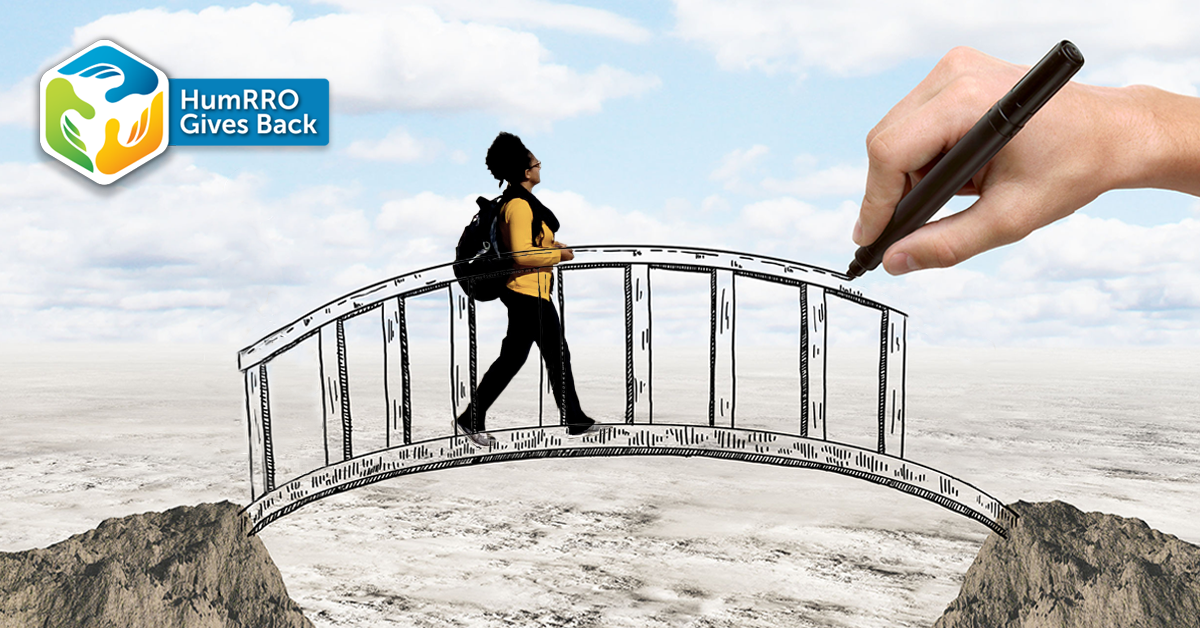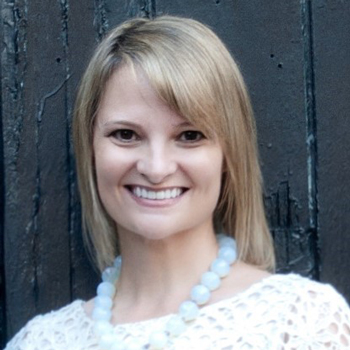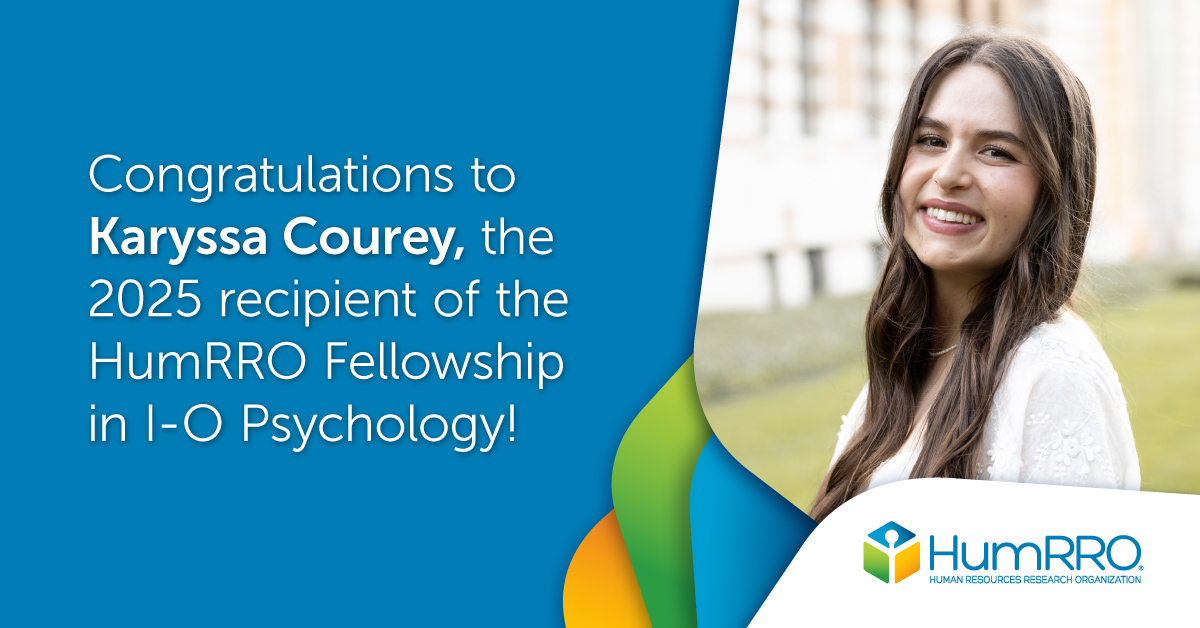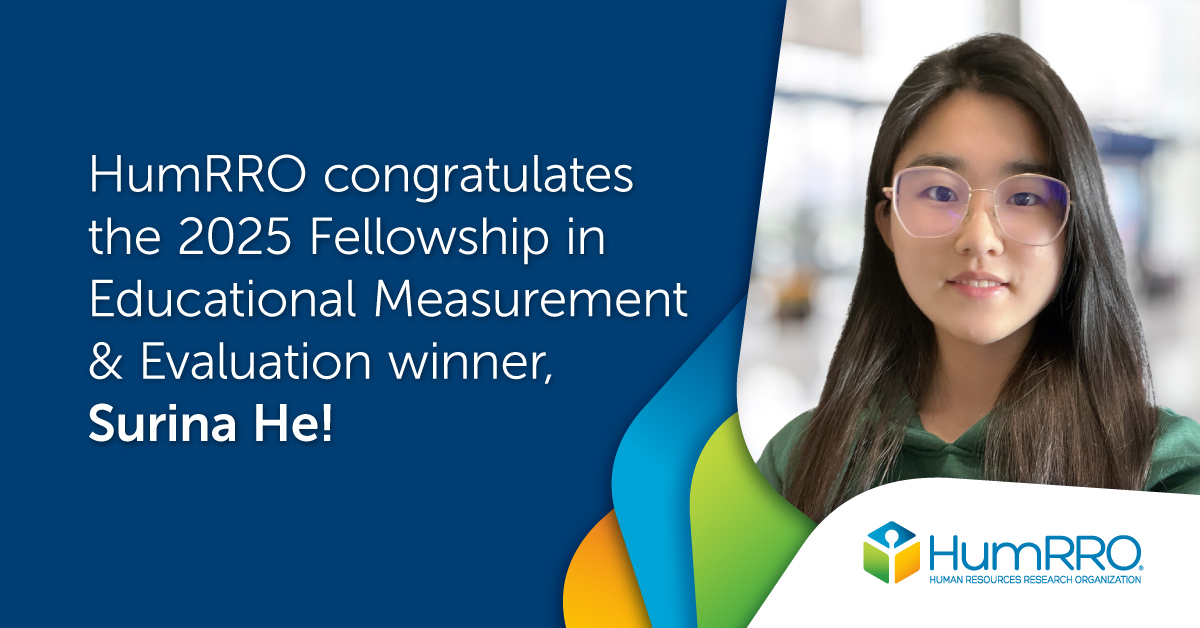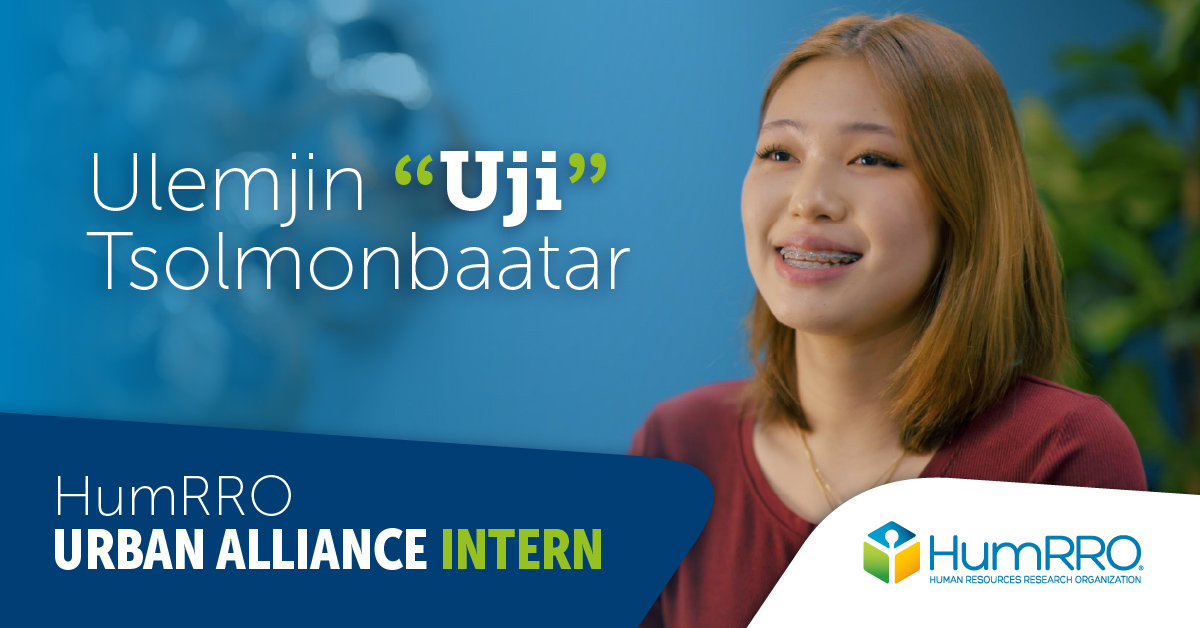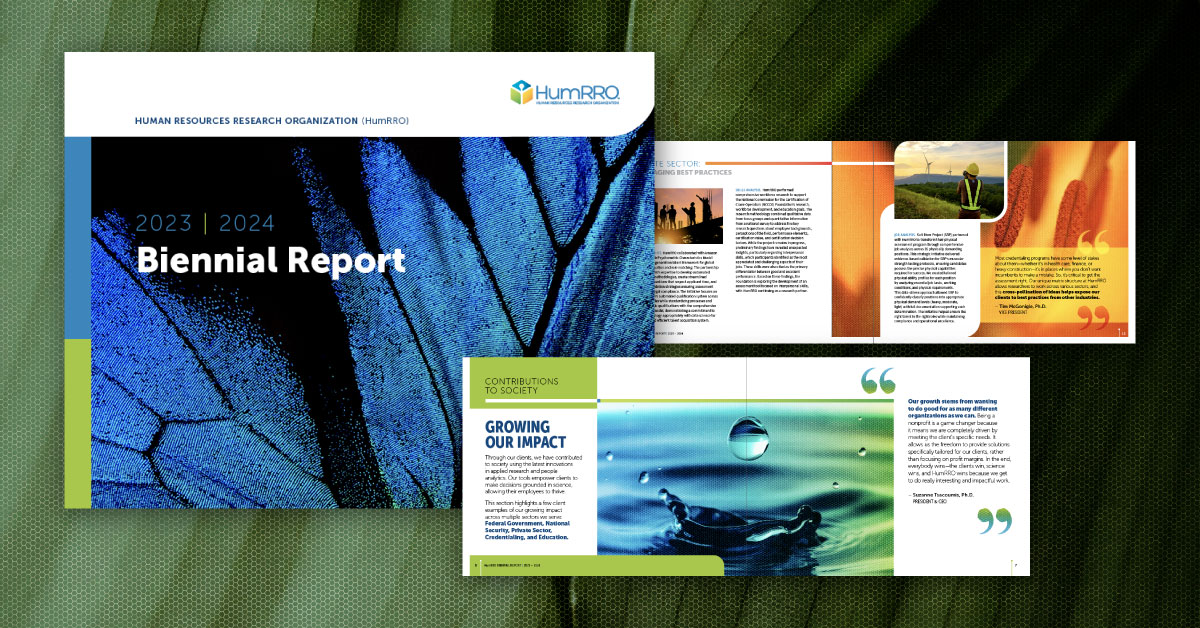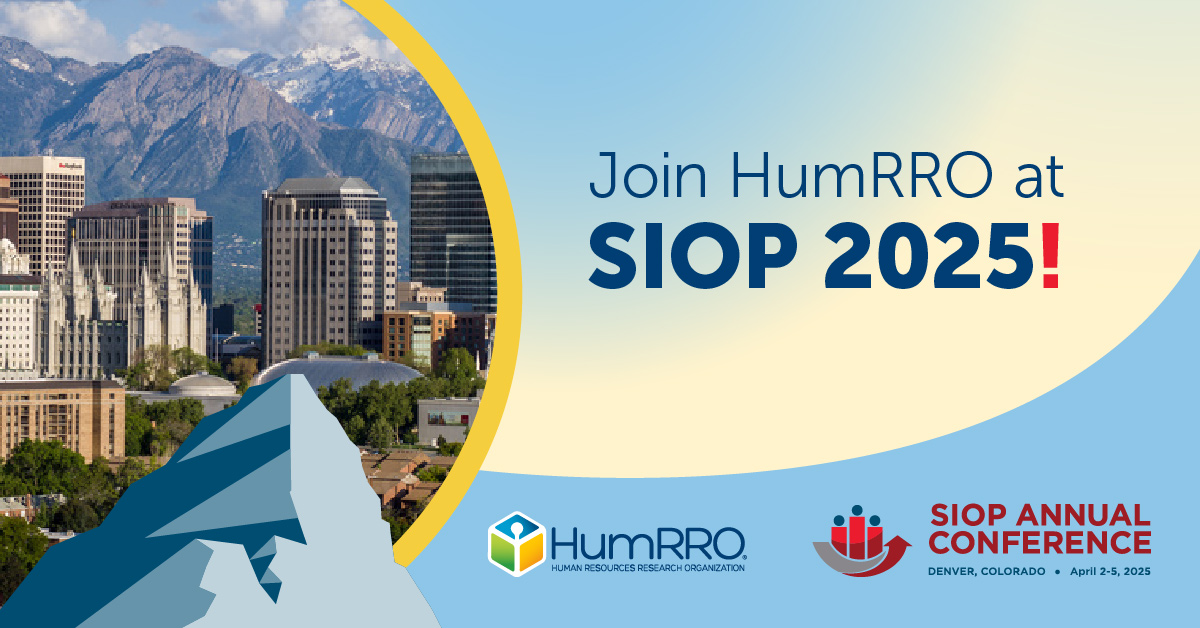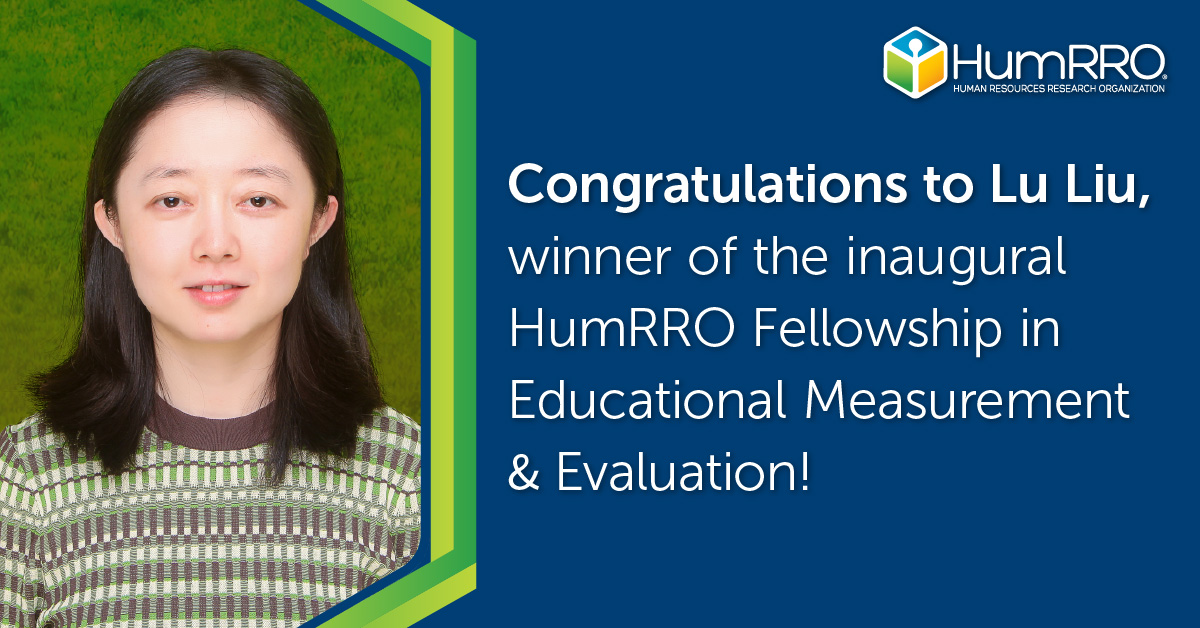As the newly elected secretary of the Personnel Testing Council Metropolitan Washington (PTCMW), research scientist Arielle Rogers, Ph.D., carries on a long tradition of HumRRO contributions to science and giving back. Rogers succeeded Katelyn McCoy, research associate at HumRRO, who took over the secretary position from Angela Lee, Ph.D., a research scientist at HumRRO. Lee also served as vice president of PTCMW in 2020.
In these leadership roles, they are helping to develop the next crop of industrial-organizational (I-O) psychologists through the implementation of and participation in PTCMW’s six-month mentoring program. McCoy recruited HumRRO’s Nicholas Howald, Ph.D., and Alyssa Marshall, Ph.D., to join as mentors in the inaugural program that wrapped up in February.
Once matched, mentors and mentees met on a regular basis virtually. Mentees benefited from advice and guidance from seasoned mentors, while mentors were able to share their knowledge as well as learn about their mentees’ I-O psychology interests. PTCMW leaders also created packets around topics of interest (including working virtually, networking, and effectively transitioning from school to the workplace) and resources to help facilitate the relationship.
Making a Match
To find the best matches, PTCMW created an interest survey for mentors and mentees to complete. It worked perfectly for Rogers, an experienced researcher in occupational health psychology, who matched with Melissa Stiksma, an I-O doctoral candidate at George Mason University in Fairfax, Va., whose research is focused on employee well-being and achieving work-life balance.
“Arielle and I were cleverly matched because of our research interests, which made it very easy to connect and to talk about job prospects,” said Stiksma. “Arielle gave incredibly practical advice on where to search for jobs that might suit me. It was valuable to have someone with applied experience who recently sought out similar jobs.”
Rogers, like the other HumRRO mentors, is an early-career I-O professional, which helps her relate to graduate student mentees. “We remember what it’s like to make that transition from academia to the workplace,” said Rogers. “I viewed my role as being there to help bridge that gap between the two worlds.”
Building Confidence
One of the most helpful exercises, according to Stiksma, was the mock interview Rogers conducted prior to her internship interview. “It was a game-changing experience both in terms of increasing my confidence on certain questions and pointing out where I could improve my narrative on others,” said Stiksma.
Similarly, Marshall, a research scientist at HumRRO, said her mentee, Sarah Sultzer, was most interested in advice on the job search process. “We spoke about the interview process and ways to help reduce anxiety during that stressful experience, as well as tips on negotiating salary, which can be a hard thing for women, especially, to navigate.”
Sultzer is graduating this month with a masters in I-O from George Mason. “Alyssa gave me great advice on how to know my worth when it comes to accepting job offers,” said Sultzer. “We also talked about how to structure my resume, how to network effectively, and ways to showcase my relevant school and work experience.”
Howald was on the fence about participating in the mentoring program because he didn’t think he had much to contribute as a recent graduate. Lee encouraged him to sign up, emphasizing the relatability factor. He’s now glad he did because of what he learned from his mentee, Kira Foley, who is a Ph.D. candidate at George Washington University in Washington, D.C.
“I learned so much from Kira,” said Howald. “Mentoring is a great opportunity to exchange ideas and get other perspectives.”
Foley, who is also a Consortium Research Fellow at the U.S. Army Research Institute, has had mentors and networking opportunities at school and work. She signed up for the PTCMW program because she wanted a structured mentor-mentee relationship with someone who was not her boss or her graduate school advisor. “Nick doesn’t have control over my paycheck or my ability to graduate,” Foley noted. “I can be real with him, almost like the more senior graduate students in my program, except he has a couple of years’ post-grad experience under his belt.”
In addition to discussing ways to communicate her skills and experiences, Foley said, “Nick and I talked about everything from job search and application strategies to professional ethics in the organizational sciences.”
“Hearing a fresh perspective from someone like Arielle who is knowledgeable in the field just cannot be overvalued,” Stiksma added.
Passing It On
HumRRO mentors and their mentees said they plan to keep in touch and all enthusiastically recommend the experience to others. The next PTCMW mentoring program is set to launch in June.
“Formal mentorship programs, where a third party matches mentors to mentees based on limited information, can be hit-or-miss, but my experience has been a success story,” said Foley.
Marshall agreed and said the mentoring program has been the most rewarding way to give back and help further the profession. Because of the pandemic, mentors and mentees in the inaugural program spoke over the phone or on video chat, once or twice a month. “It’s unfortunate we couldn’t meet in person, but we will plan to meet up when it’s safe to do so,” said Marshall.
Sultzer said she hopes to be a mentor one day and pass on the experience to someone else. “Major thanks to Alyssa, my awesome mentor at HumRRO, for being so supportive during my graduate school journey,” she added.

